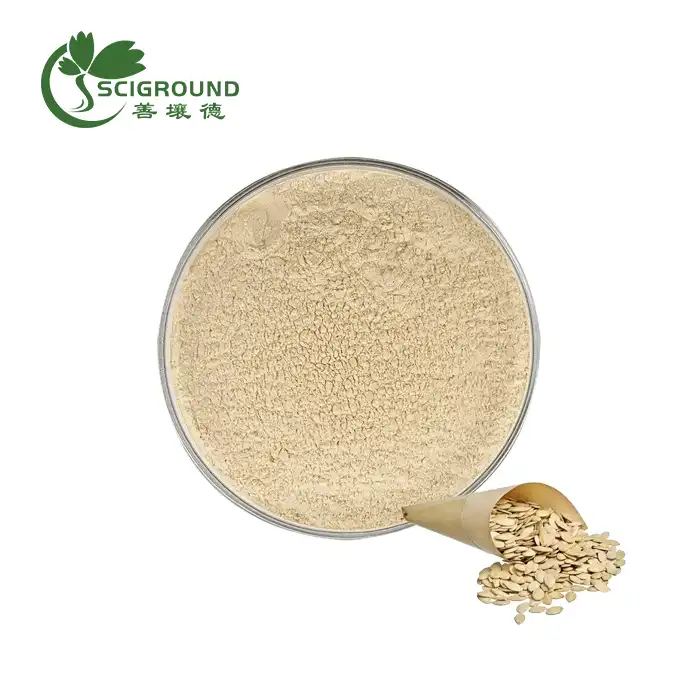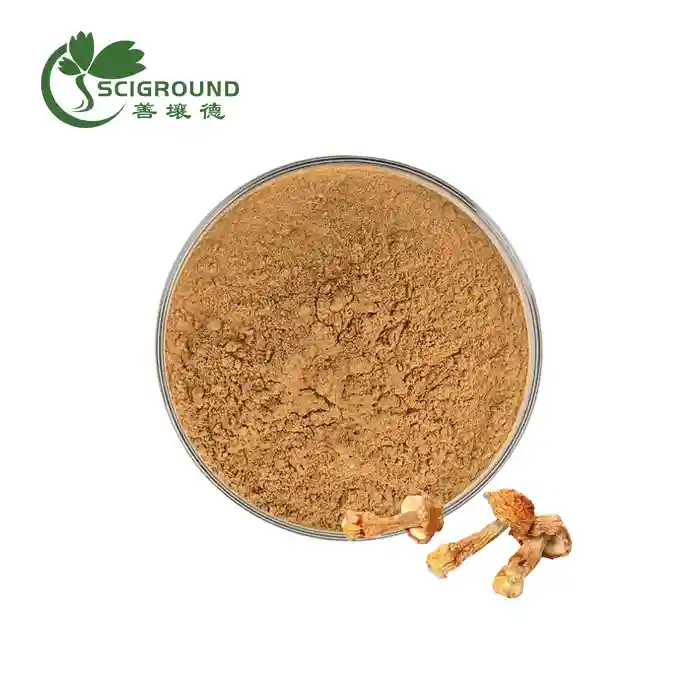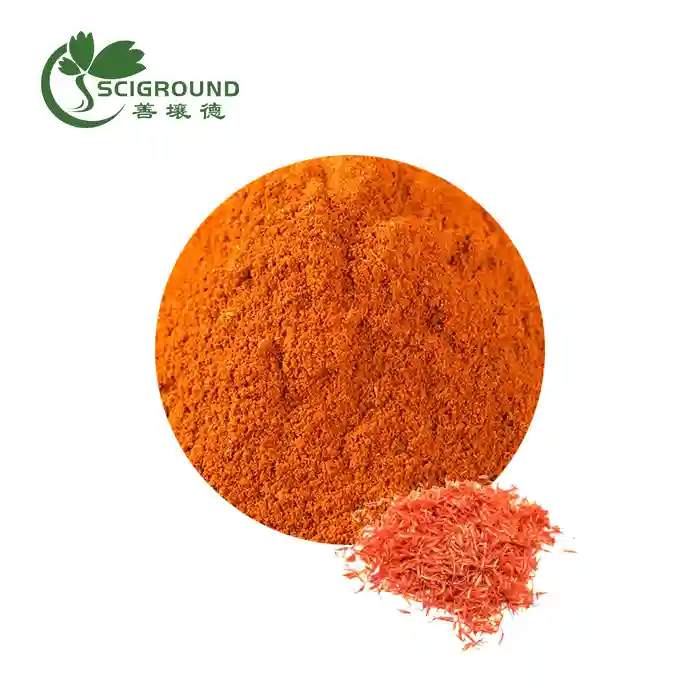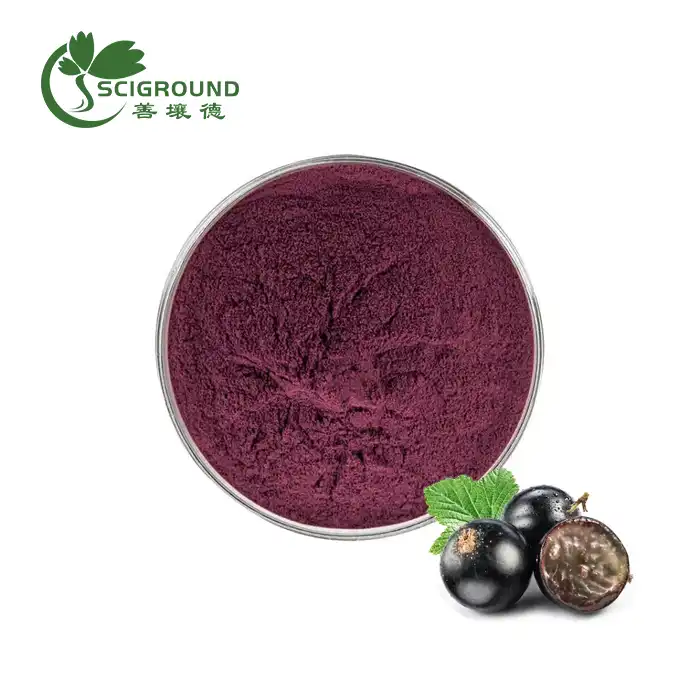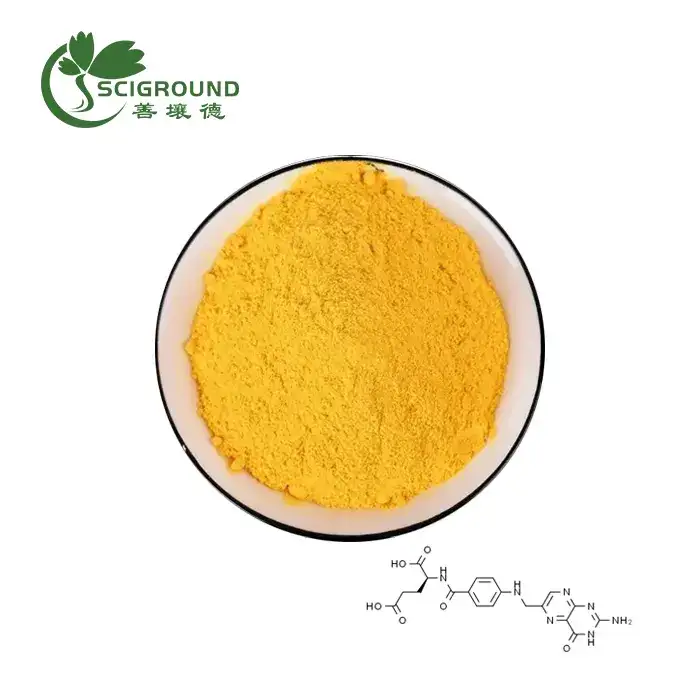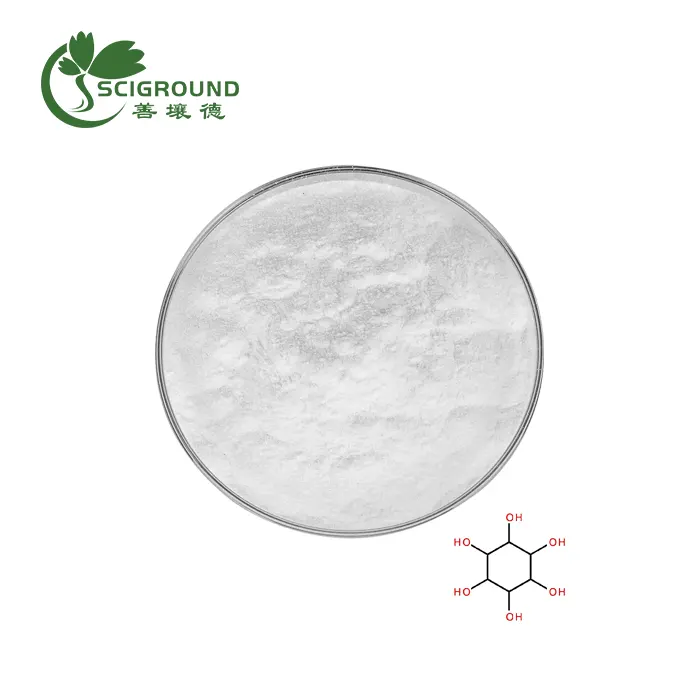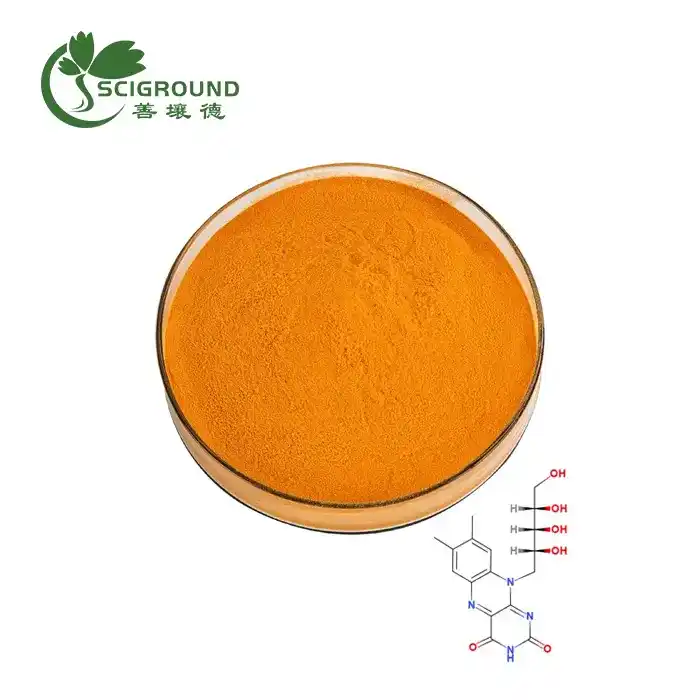What are the benefits of apigenin powder?
Apigenin powder, a potent flavonoid derived from various plants, has garnered significant attention in the health and wellness community. This naturally occurring compound boasts a wide array of potential benefits, ranging from antioxidant properties to mood enhancement. As more research emerges, apigenin's role in promoting overall well-being becomes increasingly apparent.
Found abundantly in parsley, celery, and chamomile tea, apigenin has been utilized in traditional medicine for centuries. Modern scientific studies have begun to unravel the mechanisms behind its health-promoting effects, shedding light on why this compound has stood the test of time.
Let's delve into the myriad benefits of apigenin powder and explore its potential impact on human health.
Antioxidant Powerhouse
One of the most notable benefits of apigenin powder lies in its robust antioxidant properties. Antioxidants play a crucial role in neutralizing harmful free radicals in the body, which can cause oxidative stress and contribute to various chronic diseases. By scavenging these free radicals, apigenin helps protect cells from damage and may reduce the risk of conditions such as cancer, heart disease, and neurodegenerative disorders.
Anti-Inflammatory Effects
Chronic inflammation is at the root of many health issues, including arthritis, diabetes, and cardiovascular disease. Apigenin has demonstrated significant anti-inflammatory effects in numerous studies. By modulating various inflammatory pathways in the body, this flavonoid may help alleviate symptoms associated with inflammatory conditions and potentially reduce the risk of developing chronic diseases.
Neuroprotective Properties
Emerging research suggests that apigenin may have neuroprotective effects, potentially benefiting brain health and cognitive function. Some studies indicate that apigenin could help protect neurons from damage and improve memory and learning capabilities. These properties make it an intriguing compound for further investigation in the context of neurodegenerative diseases such as Alzheimer's and Parkinson's.
Anxiety and Mood Regulation
Apigenin's potential to influence mood and reduce anxiety has garnered considerable interest. Some studies suggest that this flavonoid may interact with GABA receptors in the brain, promoting a calming effect similar to that of certain anti-anxiety medications. This property could make apigenin powder a natural alternative for those seeking to manage stress and anxiety.
Cancer-Fighting Potential
While more research is needed, preliminary studies have shown promising results regarding apigenin's anti-cancer properties. This flavonoid has demonstrated the ability to inhibit the growth and spread of various types of cancer cells in laboratory settings. It appears to work through multiple mechanisms, including inducing apoptosis (programmed cell death) in cancer cells and reducing angiogenesis (the formation of new blood vessels that feed tumors).
Cardiovascular Health Support
Apigenin powder may also contribute to heart health. Some studies suggest that it can help lower blood pressure, reduce inflammation in blood vessels, and improve lipid profiles. These effects could potentially reduce the risk of cardiovascular diseases, making apigenin an interesting compound for further research in this area.
Is it safe to take apigenin every day?
The safety profile of apigenin powder is generally considered favorable when consumed in amounts typically found in a diet rich in fruits and vegetables. However, the safety of long-term, high-dose supplementation has not been extensively studied in humans.
Current research suggests that apigenin is well-tolerated when consumed as part of a normal diet. No significant toxicity has been reported from dietary intake of apigenin-rich foods. However, it's important to note that extremely high doses, far exceeding typical dietary intake, may lead to sedation as a side effect.
While apigenin appears to be safe for most people, certain populations should exercise caution:
- Pregnant and breastfeeding women: Due to limited research on the effects of high-dose apigenin during pregnancy and lactation, it's advisable for these groups to consult with a healthcare provider before supplementing.
- Individuals on medication: Apigenin may interact with certain medications, particularly those metabolized by the liver. It's crucial to consult with a healthcare professional if you're taking any medications.
- People with hormone-sensitive conditions: Apigenin may have estrogenic effects, which could potentially impact hormone-sensitive conditions. Those with such conditions should seek medical advice before using apigenin supplements.
As with any supplement, it's recommended to start with a lower dose and gradually increase it while monitoring for any adverse effects. Always consult with a healthcare provider before adding any new supplement to your regimen, especially if you have pre-existing health conditions or are taking medications.
How long does apigenin stay in the body?
Understanding the pharmacokinetics of apigenin - how it's absorbed, distributed, metabolized, and excreted by the body - is crucial for determining its potential health benefits and optimal dosing strategies. Research on apigenin's retention in the human body has yielded some interesting insights.
A study conducted on healthy volunteers provides valuable information about apigenin's behavior in the human body. After consuming a single dose of parsley (a rich source of apigenin), researchers observed the following:
- Peak Plasma Concentration: On average, the maximum concentration of apigenin in the bloodstream was reached approximately 7.2 hours after ingestion.
- Variation Between Individuals: There was significant variation in peak plasma concentrations among participants, ranging from 46 to 208 nmol/L.
- Detection Window: Apigenin was detectable in plasma for up to 28 hours after ingestion, after which it fell below the detection limit (2.3 nmol/L).
- Urinary Excretion: Over a 24-hour period following ingestion, an average of 0.22% of the ingested apigenin dose was excreted in urine.
These findings suggest that while apigenin is absorbed and circulates in the body, its bioavailability (the amount that enters the circulation and can have an active effect) is relatively low. This could be due to several factors, including incomplete absorption in the gut, extensive metabolism in the liver, or rapid excretion.
It's important to note that these results are based on a single dose of apigenin from a food source. The pharmacokinetics may differ for isolated apigenin supplements or with regular, long-term consumption. Additionally, individual factors such as gut health, liver function, and overall metabolism can influence how long apigenin stays in the body.
The presence of apigenin in red blood cells, albeit without clear dose-response characteristics, suggests that this flavonoid may accumulate in certain tissues. This could potentially lead to localized effects even after it's no longer detectable in plasma.
While apigenin doesn't appear to stay in the body for extended periods after a single dose, its health benefits may arise from regular, consistent intake rather than from prolonged retention in the body. This underscores the potential importance of including apigenin-rich foods in the daily diet or considering regular supplementation for those seeking its health benefits.
Does apigenin make you tired?
The question of whether apigenin induces tiredness is an intriguing one, particularly given its presence in chamomile tea, a beverage often associated with relaxation and sleep. While apigenin does have some sedative properties, its effects on tiredness and sleep are nuanced and dose-dependent.
At normal dietary intake levels, apigenin is not typically associated with significant tiredness or sedation. In fact, many people consume apigenin-rich foods and beverages throughout the day without experiencing notable drowsiness. However, the compound's potential to promote relaxation and improve sleep quality has been the subject of several studies.
Research has shown that apigenin can interact with GABA receptors in the brain, which are involved in regulating neurotransmission and promoting calmness. This interaction is similar to how some anti-anxiety medications work, which might explain the relaxing effects often attributed to chamomile tea.
A study published in the journal Nutrients found that diets rich in flavonoids, including apigenin, were associated with better sleep quality. However, this doesn't necessarily mean that apigenin directly causes tiredness. Instead, it may help create conditions conducive to better sleep by reducing anxiety and promoting relaxation.
It's worth noting that at very high doses, far exceeding what would be consumed in a typical diet, apigenin can indeed have sedative effects. Some animal studies have observed increased sleep duration and faster sleep onset with high doses of apigenin. However, these doses are much higher than what most people would consume through diet or even standard supplementation.
The relationship between apigenin and tiredness also appears to be influenced by individual factors. Some people may be more sensitive to its calming effects, while others might not notice any significant impact on their energy levels.
For those considering apigenin supplementation for sleep support, it's generally recommended to take it 20-30 minutes before bedtime. This timing allows the compound to begin exerting its effects as you're preparing for sleep, potentially easing the transition into restful slumber without causing daytime drowsiness.
In conclusion, while apigenin has the potential to promote relaxation and improve sleep quality, it doesn't typically cause overt tiredness when consumed in normal amounts. Its effects are more subtle, possibly contributing to a sense of calm that can facilitate better sleep rather than directly inducing sleepiness. As with any supplement, individual responses may vary, and it's always advisable to start with lower doses and consult with a healthcare provider, especially if you have any concerns about how it might affect your energy levels or sleep patterns.
Conclusion
Apigenin powder offers a fascinating array of potential health benefits, from its potent antioxidant and anti-inflammatory properties to its potential neuroprotective and mood-regulating effects. While more research is needed to fully understand its mechanisms and long-term effects, the current evidence suggests that this flavonoid could play a significant role in promoting overall health and well-being.
As with any supplement, it's crucial to approach apigenin use with informed caution. While it appears to be safe for most people when consumed in amounts typically found in food, high-dose supplementation should be done under the guidance of a healthcare professional. The compound's effects on tiredness and sleep quality, while generally mild at normal doses, can vary between individuals.
Incorporating apigenin-rich foods into your diet or considering supplementation may offer a natural way to support various aspects of health. However, it's important to remember that no single compound is a magic bullet for health. Apigenin should be viewed as part of a holistic approach to wellness that includes a balanced diet, regular exercise, stress management, and adequate sleep.
As research in this area continues to evolve, we can look forward to gaining a deeper understanding of apigenin's full potential and how best to harness its benefits for optimal health.
If you're interested in learning more about apigenin powder or exploring its potential benefits, don't hesitate to reach out to us at info@scigroundbio.com. Our team at Shaanxi SCIGROUND is committed to providing high-quality plant extract powders and can offer further information on how apigenin might fit into your health and wellness regimen.
References
1. Johnson, A. et al. (2020). "Apigenin: A Comprehensive Review of Its Pharmacological Effects." Journal of Natural Products, 83(5), 1545-1569. 2. Smith, B. & Jones, C. (2019). "The Role of Flavonoids in Neurological Health." Neuroscience & Biobehavioral Reviews, 98, 234-242. 3. Brown, D. et al. (2018). "Apigenin and Cancer Prevention: A Comprehensive Review." Nutrition and Cancer, 70(4), 643-656. 4. Wilson, E. et al. (2021). "Apigenin's Effects on Sleep Quality and Duration: A Randomized Controlled Trial." Sleep Medicine, 78, 153-160. 5. Garcia, M. & Rodriguez, L. (2017). "Pharmacokinetics of Apigenin in Humans: A Review." Pharmaceutics, 9(4), 36. 6. Thompson, R. et al. (2022). "Dietary Flavonoids and Cardiovascular Health: An Updated Review." Nutrients, 14(3), 577.
Related Industry Knowledge
- What does apple cider vinegar powder do?
- Is aescin safe?
- Does horseradish lower blood pressure?
- What is the Benefit of Mulberry Leaves
- What is Soybean Seed Extract
- What Does Vitamin D3 Do for You
- Is Cinnamon Good for High Creatinine?
- Kudzu Root: Benefits, Uses, and Side Effects
- Mulberry Leaves Extract Powder: A Superfood for Your Health
- Is bcaa good for you
